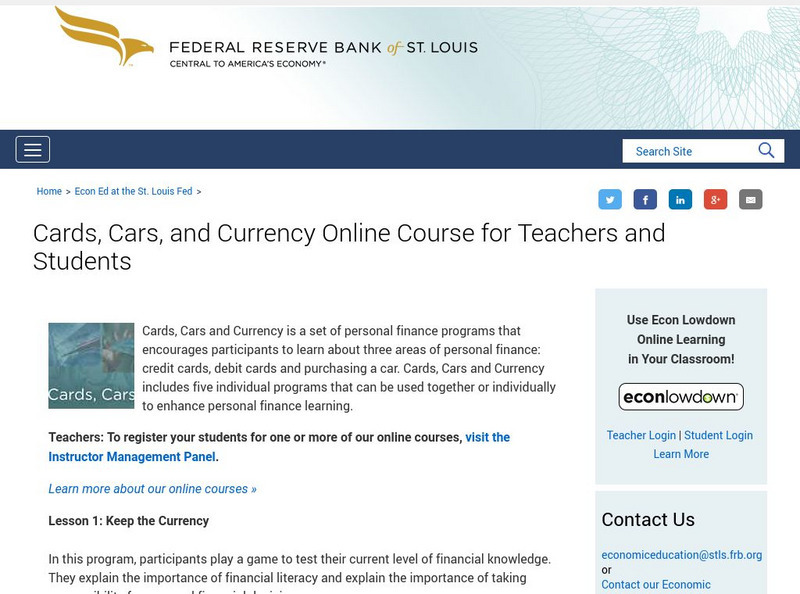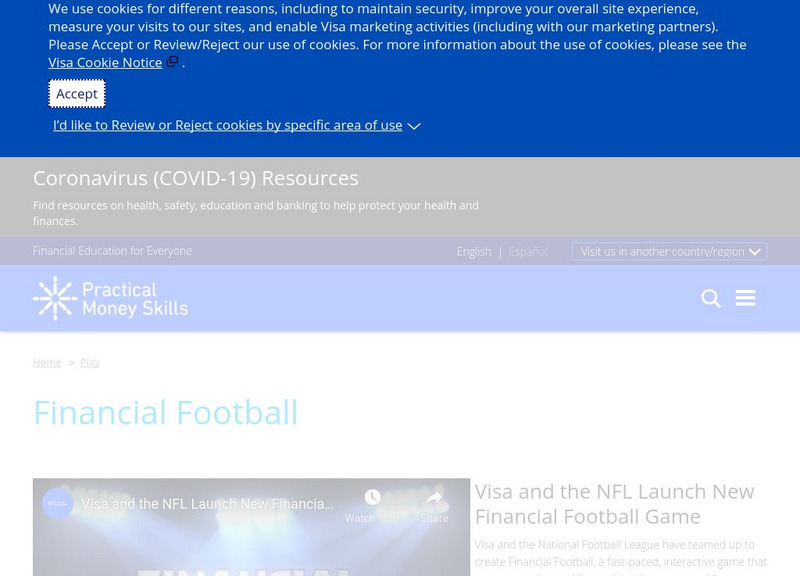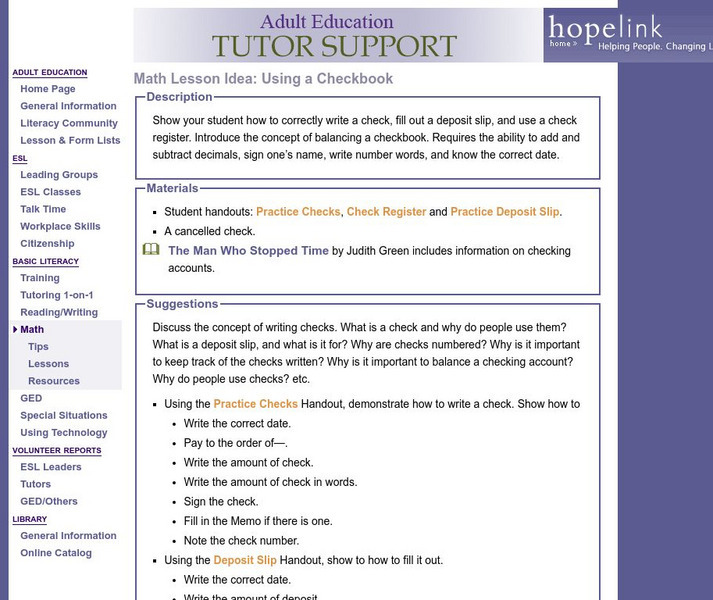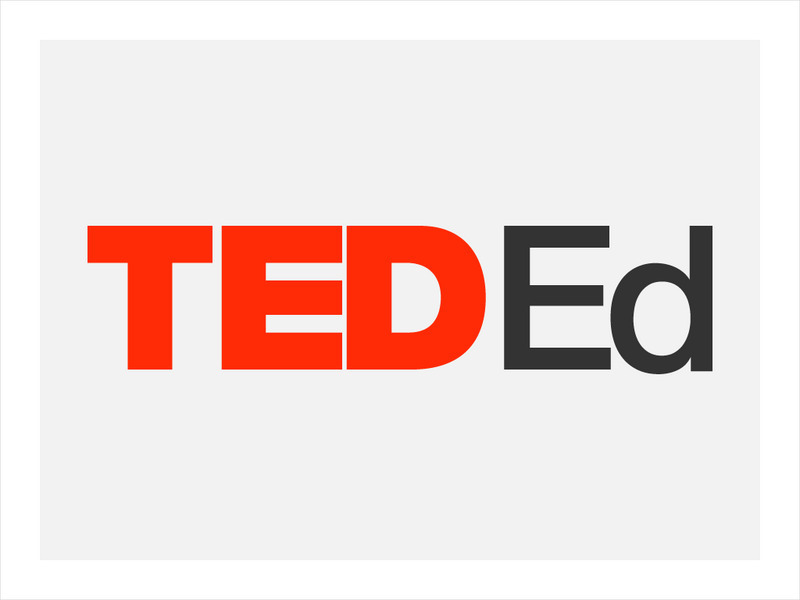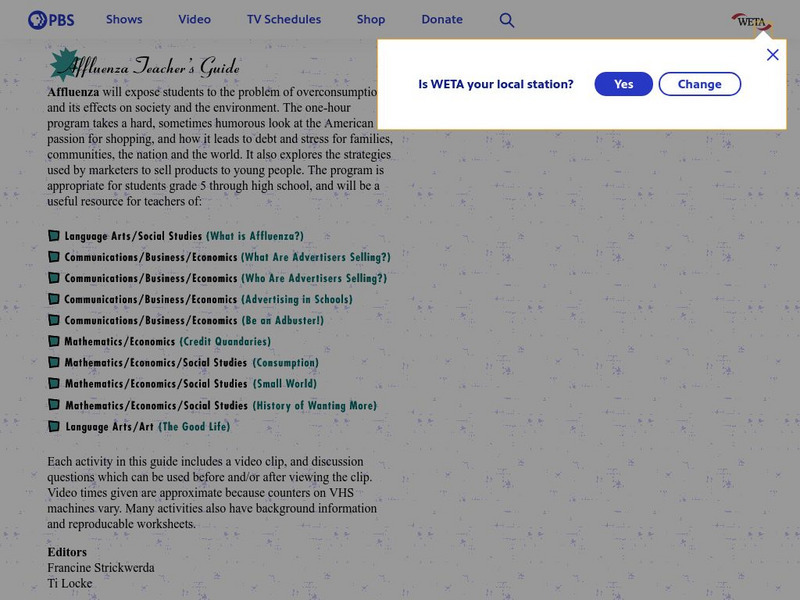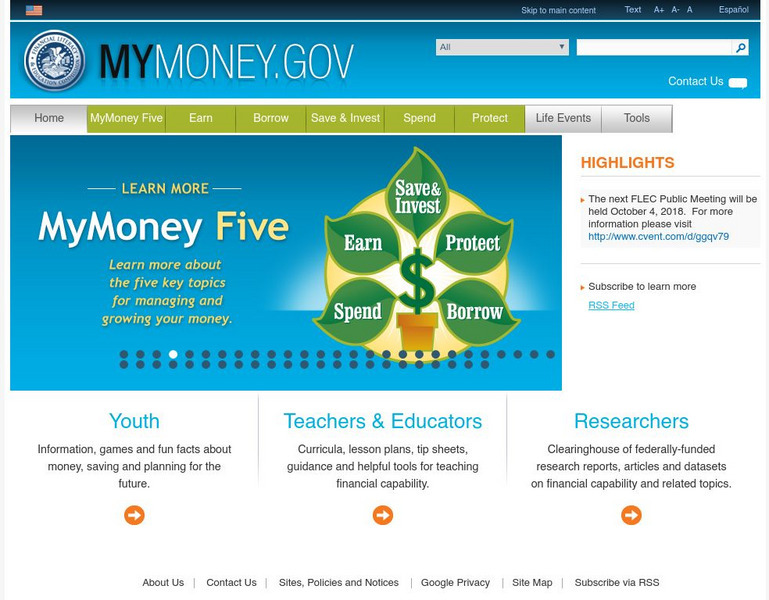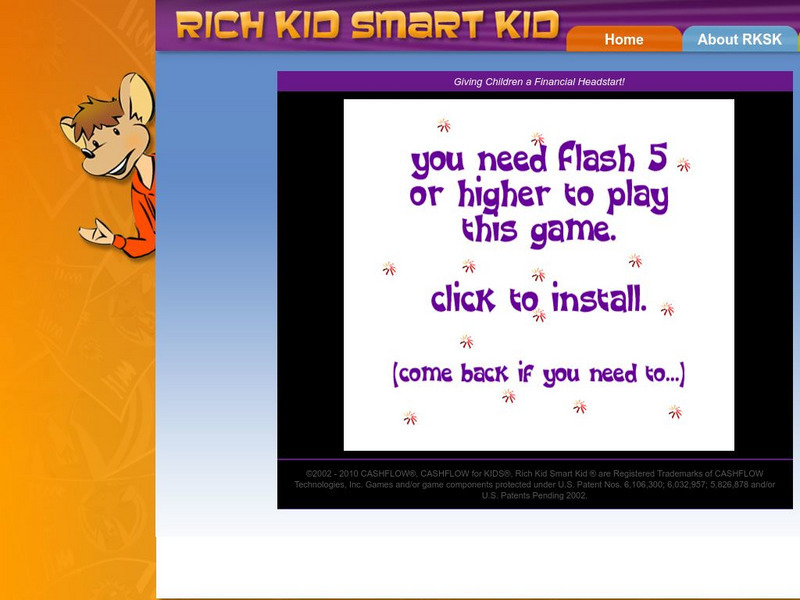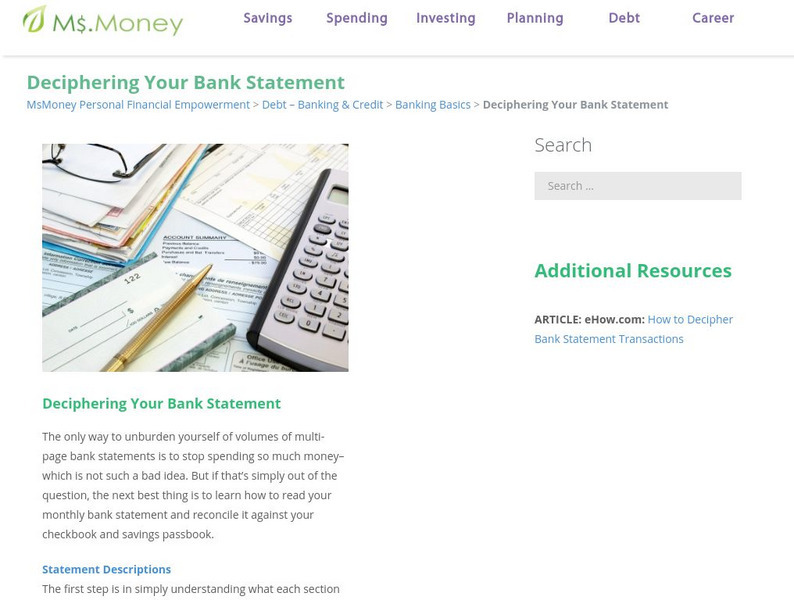Curated OER
The Roaring 20s
America during the 1920s was quite an interesting place! Bring the jazz, poverty, consumer excess, culture, and politics to life with this presentation. Primary source images, excellent descriptive text, and a wide span of topics are...
Curated OER
Consumer Economics: Building a Budget
I think most of us adults could use a tip or two on how to budget our personal finances. Pass on some valuable knowledge to your pupils as they move into the real world. The presentation provides three easy steps to creating a personal...
Other
Federal Reserve Bank of New York: Econ Explorers Journal [Pdf]
In this collection of lesson activities, learners will complete an "Econ Explorers Journal" to help them learn how economics is involved in their neighborhood, the books they read, in earning a living, at their banks, in their homes, and...
Consumer Financial Protection Bureau
Consumer Financial Protection Bureau: Consumer Tools
Useful age-appropriate lessons and activities meant to educate kids about their finances as they grow. Geared toward ages 3 through 18+, each module identifies 4 specific milestones students should understand in order to achieve...
Other
Junior Achievement: Save Usa Interactive Lessons
Interactive money management lessons teach about spending, saving money, financial responsibility, credit, and financial planning.
Federal Reserve Bank
Federal Reserve Bank of St. Louis: Cards, Cars, and Currency
A unit on personal finance related to debit cards, credit cards, and purchasing a car designed to help students develop financial responsibility.
Federal Trade Commission
Federal Trade Commission: Consumer Information
The Federal Trade Commission has developed helpful investment articles and videos to assist consumers in making educated decisions about how they spend, manage and invest their money.
Practical Money Skills
Visa: Practical Money Skills for Life: Financial Football
Football-themed game tests your consumer-finance aptitude regarding interest, banking, credit, budgeting, saving, and spending.
Council for Economic Education
Council for Economic Education: Learning, Earning, and Investing
This course is subtitled "Lessons for a New Generation." It includes twenty-one downloadable lessons with additional activities for each lesson. It covers a wide range of topics from basics such as "Why Save?" and "Invest In Yourself" to...
iCivics
I Civics: Mini Lesson A: Monetization
Students learn that news is a business and how news providers monetize the news through advertisements and consider how the news/profit relationship affects journalism and news audiences.
Hopelink
Hopelink: Using Your Checkbook: Eastside Literacy Program
Show your student how to correctly write a check, fill out a deposit slip, and use a check register. Introduce the concept of balancing a checkbook. Requires the ability to add and subtract decimals, sign one's name, write number words,...
University of Missouri
University of Missouri: Wise Pockets: Four Dollars and Fifty Cents
This is a lesson geared towards elementary level students. Using the book Four Dollars and Fifty Cents by Eric Kimmel, the teacher instructs students about the terms creditor, debtor, collateral, credit, and credit report. Lesson...
TED Talks
Ted: Ted Ed: Would Winning the Lottery Make You Happier?
Imagine winning a multi-million dollar lottery tomorrow. If you're like many of us, you'd be ecstatic, unable to believe your good luck. But would that joy still be there a few years later? Raj Raghunathan describes a phenomenon called...
PBS
Pbs Lesson Plan: What the World Consumes
These visual, easy-to-grasp lessons in world economics and consumerism features lessons and related videos in which students experience first-hand the economic dilemmas faced by other countries and are asked to examine their own values...
PBS
Pbs Lesson Plan (Affluenza): Credit Quandaries
"Credit cards are not free money." Just how do credit cards work? This site provides a instructional activity in which learners investigate the lure of credit card companies, the pitfalls of credit debt, and the impact of credit debt on...
PBS
Pbs: Financial Literacy: On the Money
Explore PBS's "On The Money," program for teens to investigate teens & money, budgeting, bank accounts, credit cards, calculators, and moneymaking ideas.
Other
My Money
This Federal Government website provides consumers with many resources and much information to help them to manage their money better. Topics include budgeting, taxes, saving, investing, retirement planning, credit, and checking...
Other
Co Op America
The Co-op America foundation is a non-profit organization that focuses on fair economic practices to teach social and environmental responsibility. Their many programs such as Green Business, Green Energy, Fair Trade, Responsible Shopper...
Other
Co Op America
The Co-op America foundation is a non-profit organization that focuses on fair economic practices to teach social and environmental responsibility. Their many programs such as Green Business, Green Energy, Fair Trade, Responsible Shopper...
Other
Rich Kid Smart Kid: Reno's Dilemma
Interactive games for students of all grade levels, K-12, teaches basic concepts of finance, in particular, good debt and bad debt.
MsMoney
Ms Money: Deciphering Your Bank Statement
This site explains the items that appear on a bank statement and also includes procedures for reconciling a bank statement. Click on the headings for more information. Also, explore the additional financial topics by clicking menu items.
Practical Money Skills
Practical Money Skills for Life: Lesson Plans
A series of financial literacy lesson plans broken out by grade range for grades from Pre-K through college, with an additional set of lessons created for students with special needs.
Council for Economic Education
Econ Ed Link: Lewis and Clark Barter With Native Americans
In this lesson you will define the term barter and give examples of bartering in several different areas. Find out how this system took shape and was useful to Lewis and Clark. This site is extremely informative and contains extension...
Council for Economic Education
Econ Ed Link: Did You Get the Message?
Advertising is the primary tool used by businesses to tell consumers about the goods and services they sell in the marketplace. Businesses also use advertising to try to convince consumers to buy what they are selling. Advertisements do...




![Federal Reserve Bank of New York: Econ Explorers Journal [Pdf] Lesson Plan Federal Reserve Bank of New York: Econ Explorers Journal [Pdf] Lesson Plan](https://d15y2dacu3jp90.cloudfront.net/images/attachment_defaults/resource/large/FPO-knovation.png)


